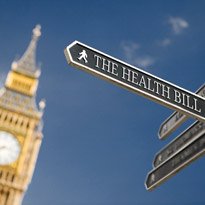The Commons’ health select committee has called for a number of ‘changes’ to the government’s NHS reforms that would amount to a substantial rethink of how to re-organise the NHS.
In a report issued this morning to coincide with the end of the committee stage of the Health Bill, the committee, which is headed by former health secretary Stephen Dorrell, calls for radical changes to the make-up of GP commissioning consortia.
The report follows yesterday’s announcement by health secretary Andrew Lansley that he will use the “natural pause” between the committee stage and the Bill returning to the floor of the House of Commons to run a further round of consultation on his plans.
Lansley indicated in a statement to the Commons yesterday that he might be willing to make amendments to the proposals, which were first set out in the ‘Liberating the NHS’ white paper last summer.
He acknowledged that one set of criticisms has centred on the role of the commissioning consortia, and their transparency and accountability.
This is the major concern of the health committee, which has presented its report as a follow-up to earlier work that it carried out on effective commissioning.
However, if accepted, the committee’s ideas would lead to a major rethink of the role of the new bodies, which are set to take on 80% of the NHS budget.
Indeed, it would make them look more like the old health authorities that were abolished in favour of primary care groups and then primary care trusts when Labour shook up commissioning a decade ago.
The committee says that the commissioning groups should be recast as Local Commissioning Authorities, with independent chairs and representatives from local authorities and a wider range of clinical staff on their boards.
It argues that widening participation would allow the government to drop its plans for Health and Wellbeing Boards to provide a link between health, social services and other services run by local authorities.
It also argues that it would allow the role of the NHS Commissioning Board to be scaled back.
The NHS Commissioning Board has acquired an increasing number of powers as the reforms have progressed, in order to provide central direction to the new NHS and avoid conflicts of interest, such as GP commissioning consortia buying primary care from their own members.
However, the health committee warns that Lansley’s plans risk replicating the ‘over-centralised’ arrangements of the past.
It is also concerned that the Local Commissioning Authorities should be open to public scrutiny, and says they should publish papers, meet in public, and have a legal obligation to consult the new Health Watch bodies that are envisaged as consumer groups to represent the public.
Dorrell said: “We believe it is crucial to get the reform of NHS commissioning right if the health service is to confront the massive financial challenge it now faces.
“Ever since 1948, the NHS has suffered from an artificial distinction between primary and second care. This is an opportunity to abolish it for good. It is an opportunity to deliver greater efficiency and high quality at the same time. It is a ‘win-win’ – what is the argument against.”
The health committee has nothing to say about greater competition among providers, which has become the primary concern of doctors’ groups and unions.
However, Lansley indicated that he might address concerns about protecting A&E and preventing “cherry picking” in his Commons statement yesterday.
Reform and you: EHealth Insider is running a survey to find out how the savings that the NHS is required to make over the next four years and the start of the latest round of reorganisation and reform is affecting the acute sector, IT people working in it, and the IT investment decisions of hospitals.
The survey will be closing shortly, so please take a few minutes to complete it. We will, of course, treat all responses in complete confidence: but there is a chance to win an Kindle 3G as a thanks for your time.

